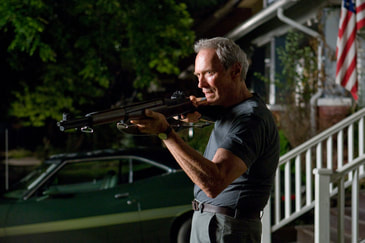Stress can rear it ugly head through many different physical, mental, social or emotional avenues and it will usually begin with a trigger or incident that forces your stress response to kick in. This is commonly known as the Alarm Reaction Stage.
The Alarm Reaction Stage refers to the initial symptoms that your body will experience when it is under stress and what you will do on auto-pilot to combat this. You may be familiar with the 'F' responses that people generally engage during the Alarm Reaction Stage. For those of you that aren't familiar with your 'F' responses they usually fit into one of these categories:
Fight - Attacking, confronting, dominating. Being angry and irritable and using insult, blame and the mistreatment of others to deal with stress.
Flight - Run, hide, quit. Being in denial and anxious and using evasion, sabotage and purposeful rejection to deal with your stress.
Freeze - Comply, surrender, shutdown. Being numb or empty and using detachment, rationalizing and justification to deal with your stress.
Face - Challenge and analyse. Being calm and grounded. Using alert, aware and decisive action to deal with your stress.
Sometimes we may use one or more of these responses when we feel stressed and that is also completely normal. Your body does these things because it is trying to keep you safe. You feel stressed, you feel anxious and your body will kick everything up a notch to keep you out of harms way. Generally before you arrive at the Face response, you will first arrive at the Resistance Stage which comes right after the Alarm Reaction Stage.
In the Resistance Stage, after the initial shock of a stressful event and your 'F' response, your body will begin to attempt to repair itself. It will release a lower amount of cortisol and your heart rate and blood pressure will normalize. Although your body will be in recovery, you will still be functioning on high alert. If the stressful situation diminishes your body will continue to heal itself until you are back to normal. However, if stress continues in this phase your body will attempt to learn to live with higher levels of stress and will go through changes that you're unaware of, in attempt to cope. Your body will continue to secrete the stress hormone and your blood pressure will remain elevated. You will feel irritable, frustrated and will struggle to concentrate on things. After a while you will enter the third stage of stress response - The Exhaustion Stage.
The Exhaustion Stage is the result of prolonged or chronic stress. You will feel drained physically, emotionally and mentally to the point where your body no longer has the strength to engage your 'F' responses. You will suffer complete hopelessness and display fatigue, burnout, depression, high anxiety and an overall decreased ability to deal with even the smallest amounts of stress. Your immune system will be weakened and you'll be more prone to illness, serious diseases and ailments.
So.... Clearly we need to have the resources and skills to be able to engage our Face 'F' response early on when dealing with a stressful scenario in order to minimise the impact to our health and wellbeing. And although it's not possible to eliminate all stress from our lives, there are things that we can do to minimise the impact that stress can have on us.
I believe that it's vital that everyone has a sound tool kit of ways to deal with their stress, and that is going to look a little different for everyone. Acknowledging, recognising and regularly evaluating your stress levels is a key way to ensure that you are managing your stresses before they get too large. If you do suffer from stress indicators, then it's vital that you give yourself adequate time to repair and recover during the Resistance Stage before you enter the Exhaustion Stage.
Look at what is causing the stress that you have in your life and evaluate your need to continue with this event or action. What can you do to change things for the better? If you find that you cannot eliminate your stress then you will need to investigate methods of stress management with a health care professional which may include exercise, medication, diet, meditation and deep breathing exercises. But, whatever you do don't give up on your attempts to improve your responses to stress and do not let stress rule your life. Remember that some stress is normal but too much is not and you don't want to be a slave to your stress responses.

Release Date: 2008
Rating: M
Running Time: 116 mins
Written and produced by Clint Eastwood, who also starred in the lead role; his first starring role since Million Dollar Baby in 2004. Gran Torino is the first mainstream American film to feature Hmong Americans. Many Lao Hmong war refugees resettled in the U.S following the communist takeover of Laos in 1975, so it was great that this minority group was finally being represented in American cinema.
Walt Kowalski is a cantankerous, racist, Polish retiree and a Korean War veteran. Struggling with the recent death of his wife, his ailing health due to being a chronic smoker and his religious beliefs, Walt spends his free time quietly monitoring his gang heavy Detroit neighbourhood and polishing his pride and joy - a 1972 Ford Gran Torino. When Walt catches his Hmong neighbour Thao attempting to steal his precious car one evening, he is angry and wants nothing to do with any of them. But after later saving Thao from a violent gang attack, he finds that he has earned the respect of the Hmong community, that now believe that they owe him for his kind act.
Clint Eastwood has a real knack for acting like a tough guy 'fish out of water.' All of the reluctance that Walt experiences in relation to getting in touch with his feelings is what makes this film so enjoyable and at times quite humorous. But at 78 years of age when filming Gran Torino, Eastwood shows that he still has what it takes to make great movies and play a convincingly tough old bastard as well.
FINAL SAY: What the hell does everybody want with my Gran Torino?
3 Chilli Peppers

 RSS Feed
RSS Feed